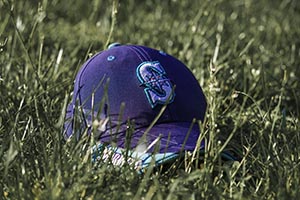I worked as a consultant for a $40 billion-a-year company, 12 years, and then they hired me full-time. Less than a year later, I was laid off, and then about 8 months after that, I was brought back as a consultant again. At a better pay rate than before. During that “sabbatical” I worked at a small start-up that made brain-training games. Part of my job was to read brain-blogs all day long, on all sorts of subjects, from biology to psychology to philosophy. By this deeply personal and circuitous route, I bring you to my discovery of “mindfulness,” which has been a pretty hot topic in brain science for a few years now.
The relevance of mindfulness to the above, of course, is being aware that end results are always only the very smallest part of a journey. It’s a more complicated way of suggesting one not sweat the small stuff. So the Mariners lost AGAIN last night. How can mindfulness help me deal with this sports anxiety?
I mean, thinking about it, new-age philosophy and sports fandom go together like peas and chocolate. Indeed, the only place they would ever meet is in the head of a self-indulgent, middle-aged, upper middle class, privileged white male living in Seattle in the new-millennia teens. Nevertheless, here I am.
The Mariners, after 14 games, are five and nine. They have to win four games in a row just to break even. They have to do better than they’ve done, so far, just to be considered mediocre. There’s an irony there. Hard work is supposed to be its own reward, but here’s what I’m finding in all of this: no it’s not.
If the journey is the thing, then the current record doesn’t matter. And we hear this in sports all the time. Athletes will tell you they don’t think about the last game, they only think about the next one. They don’t think about the play-offs, they just think about the next game. And when they’re playing, they only think about the game they’re in.
Turns out, good athletes are expert practitioners of mindfulness. And that’s the reward: not needing a reward. “It isn’t whether you win or lose; it’s how you play the game.” So, ignoring the winning and the losing of my home-town team, how am I playing this game?
All I can do is try to find something in this game I’m playing, this ridiculously close examination of my feelings vis-à-vis the losing record of one of the highest paid teams in baseball. My discovery: mindfulness. Being self-aware. Knowing that I’m darn lucky to even have access to the misery of watching my team lose. Being grateful for my existence.
And laughter— the look on the average fans face if/when I tried to explain all of the above. “Every loss is a gift,” I would say. “So is every beer,” they’d reply. Sounds like a win-win to me.


